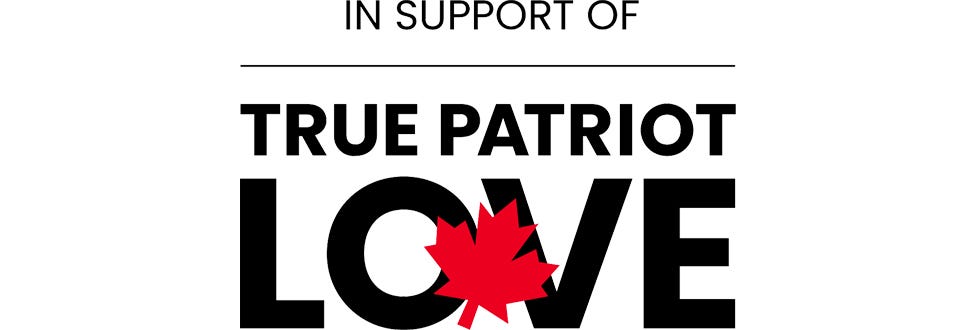A Guide to Starting a Business as a Veteran
- Jun 8, 2020

Transitioning to civilian life can be difficult. However, there are many skills veterans learn in the service that can translate into numerous career prospects and paths. One of these paths is entrepreneurship. Entrepreneur veterans make a significant impact on the American economy, creating jobs that employ nearly 5.8 million people. Veterans are also 45% more likely to be self-employed than non-veterans. Around 9% of all U.S. businesses are veteran-owned and they range greatly by industry. Industries with higher-than-average veteran ownership include:
- Finance and insurance;
- Transportation and warehousing;
- Construction;
- Agriculture, forestry, and fishing
- Utilities;
- Professional, scientific, and technical services;
- Manufacturing.
There are many challenges associated with starting any business, but there are a few key differences for veterans. While veterans must also follow the general steps associated with starting a business, there are specific resources that veteran entrepreneurs can and should take advantage of. This guide will not only outline entrepreneurial steps but will detail resources and opportunities that help veterans get their business up and running as well as ones that support continued growth and development.
Determine Your Business Concept
All businesses begin with a concept, so you’ll need to assess not only what you are good at and what interests you, but what the market needs and is willing to pay for. Selecting your industry is no easy feat, you’ll also have to consider what types of tools, premises, machinery, or technology you’ll need to serve your customers. You’ll need to assess your skills, find a lucrative niche in the market, and determine what type of equipment you need to start, and what you may need to invest in once you are up and running. You’ll also need to consider if you want to sell your products and services from brick-and-mortar premises, or through an online website.
Selecting an industry to enter may include considering your previous experiences as a veteran and applying them to the civilian workforce. Target an industry with which you are familiar and focus on pain-points that you may know how to solve. Skilled trades and construction are often accessible to veterans from their previous experiences and can be approached either as a tradesperson, contractor, or manufacturer. Using your tactical skills to manufacture tools such as can help you both find a niche, as well as support other businesses in the construction industry.
Take Advantage of Veteran Entrepreneur Resources
There are many resources available that are specific and exclusive to veteran entrepreneurs. These programs typically feature business plan workshops, concept assessments, mentorship, or training opportunities.
- The U.S. Department of Veteran Affairs Veteran Entrepreneur Portal: provides direct access to resources and outreach programs for every stage of entrepreneurship.
- Boots to Business: provides introductory entrepreneurship courses that include skills, knowledge, and resources needed to launch a business. This path offers not only the Boots to Business course, but extends to a Reboot course, with further information.
- Veteran Women Igniting the Spirit of Entrepreneurship (VWISE): offers veteran women or female military spouses a training program in entrepreneurship and small business management. The course is a three-phase program that transitions from a training event to mentorship and support opportunities, to launching or growing a business.
- Entrepreneurship Bootcamp for Veterans (EBV): provides skill development and practical and experiential training in entrepreneurship and small business. This program also helps veterans leverage other veteran programs and services to get a business started.
- National Veterans Entrepreneurship Program: offers experiential training in entrepreneurship to veterans who experience disability as a result of their service. This program can be accessed for free by eligible and qualified veterans.
- Dog Tag Inc.: offers an educational fellowship program form Georgetown University and real-life experience from a small business bakery for veterans with service-connected disabilities, military spouses, and caregivers.
- National Center for Veteran Institute for Procurement (VIP): open nationwide veteran entrepreneurship programs that specifically target federal procurement. Programs cover a variety of topics including contracting, team agreements, human resources, accounting, finance, program controls, and business development.
- Bunker Labs: a non-profit organization that is a national network of veterans and military spouse entrepreneurs that are dedicated to helping the military-connected community get the resources, mentorship, and networking they need to start their own business.
- VetFran: many entrepreneurs choose to become franchisees. This organization encourages franchisors to offer discounts and incentives for potential vet franchisees, in addition to offering tools, resources, and a database of franchising opportunities to vets.
- American Corporate Partners (APC): offers mentorship, networking, and educational programs for military personal or military spouses.
Create a Business Plan
Once you have found a niche and have pursued the knowledge you need to operate a business, you’ll need to create a business plan so that you can apply for a loan or properly pitch to investors. Your business plan will be the blueprint for your goals, your introduction to the market, and how you intend to manage and operate your business.
A few things that every business plan needs include:
- Executive summary;
- Overview of business;
- Type of business;
- How it will be formed;
- Your goals;
- The location or means of doing business;
- Detailed market analysis;
- Sales and marketing plan;
- Product and service development;
- Financial plan and projections;
- Plans for funds;
- Start-up costs;
- Operation costs for the first few years;
- Anticipated additional funding;
- Ongoing business expenses.
Creating a detailed business plan shows investors and lenders exactly where their money will go, and how it will be used. This can help build trust and encourage them to offer the funding you will need to get started.
Apply for Financing
Obtaining financing can be one of the most difficult hurdles of becoming an entrepreneur. In addition to having a great business plan, you’ll also need to do some research and make sure you find an investor that offers terms that are beneficial and equitable for both sides. Being a veteran can be an advantage, there are many specialty services with lenders, credit unions, and banks for loans, as well as investment programs that are built to serve the military community. There are also government-backed loans that provide additional security, making your application more likely to be approved.
The U.S. Small Business Association (SBA) offers specific programs for veteran-owned businesses, including a lender match tool that connects entrepreneurial vets with lenders. They also have SBA veteran business loans that are specifically catered to veterans and sometimes do not require an upfront fee. In order to qualify, you must be one of the following: honorably discharged, service-disabled, an active duty member participating in the Transition Assistance Program, a reserve or National Guard Member, or a military spouse.
There are also private business loans that are available from companies such as StreetShares — which offers peer-to-peer lending that was started by veterans to help other veterans. It can help to ask lenders and include your veteran status on applications and business plans when completing loan applications; investors and lenders are more likely to connect you with veteran programs if they’re aware of your status.
Get Registered as a Veteran-Owned Business
There are quite a few opportunities to register as a veteran-owned business that can help you to develop your business. Oftentimes, registering or becoming verified can provide your veteran-owned business specific opportunities to source contracts, or connect with other veteran-owned businesses.
- The U.S. Department of Veteran Affairs Vets First Verification Program: this verification program involves a few stages, applying assessment, federal review, and decision making. However, becoming verified can give you access to set-aside sole-source contracts.
- Small Business Association Service-Disabled Veteran-Owned Small Business Program: the government limits competition for certain contracts to make them more accessible for those who are a part of the Disabled Veterans Business Program.
- The American Veteran Owned Business Association: the aVOBa is a network of veterans and veteran-owned businesses that promote and grow other veteran-owned businesses and organizations. The aVOBa offers resources, directories of veteran-owned businesses, sponsorships, employment and hiring networks, and purchasing networks specifically designed to promote veteran-owned businesses.
- National Veteran-Owned Business Association: the NaVOBA is a non-profit organization that offers certification, education, networking, and development, as well as corporate allies to help support and develop veteran-owned businesses.
Grow & Improve Your Business
Once you’ve launched your business, it’s important to continue looking for ways to improve business operations and help it grow. Owning and managing a business can be a feat of determination that takes hard work and patience. These are qualities often gained from a background of military experience. Consider creating a military community-focused commitment or mission statement, or networking with other veteran-owned businesses to offer support and services to help each other grow and improve. Other ways to help the veteran community while growing your own business is cultivating veteran partnerships by seeking or providing mentorship opportunities, hiring veterans, donating to veteran causes, and spreading the word for other vet-owned businesses.









